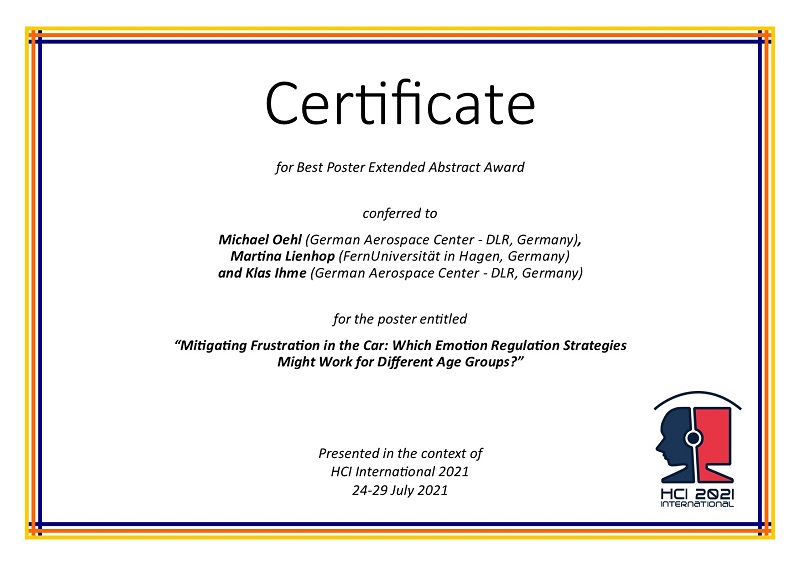
Certificate for Best Poster Extended Abstract Award
The award has been conferred to
Michael Oehl (German Aerospace Center - DLR, Germany),
Martina Lienhop (FernUniversität in Hagen, Germany) and
Klas Ihme (German Aerospace Center - DLR, Germany)

Michael Oehl
(presenter)
for the paper entitled
"Mitigating Frustration in the Car: Which Emotion Regulation Strategies Might Work for Different Age Groups?"
Presented in the context of
HCI International 2021
24-29 July 2021
Paper Abstract
"Frustration negatively affects user experience both in manual and automated driving and negatively influences driving performance and system acceptance. Hence, frustration-aware in-vehicle systems that assess the drivers’ current level of frustration and help to mitigate it have gained attention. However, while there has been ample of research on the assessment of the user’s affective state in the vehicle, little progress has been made on the mitigation of these affective states. Thus, little is known about interaction strategies for automotive user interfaces that successfully mitigate the user’s frustration in frustrating situations. To bridge this gap, the aim of this study was the investigation of potential frustration regulation strategies as basis for supporting frustrated vehicle users in frustration-aware systems based on user needs. We conducted focus groups with users of different age groups (below and above 65 years) to explore which different emotion regulation strategies might work for different age groups in a user-centered way. Two representative use cases of today’s and future driving were chosen, one for manual and one for automated driving, respectively. Only slight differences for the suggested emotion regulation strategies were observed between the age groups with respect to their rated helpfulness. The results provide a helpful basis to develop future in-vehicle frustration mitigation systems in terms of intelligent automotive user interfaces."
The full paper is available through SpringerLink, provided that you have proper access rights.